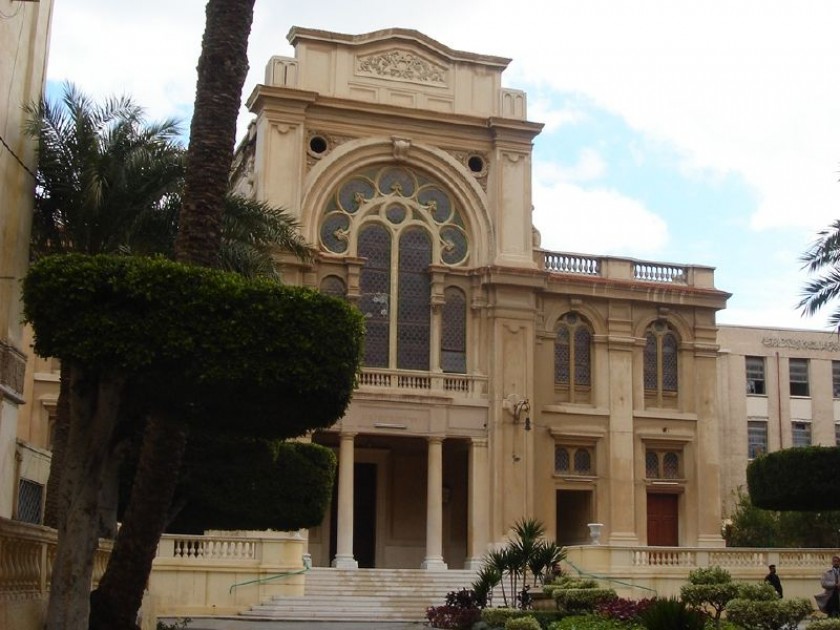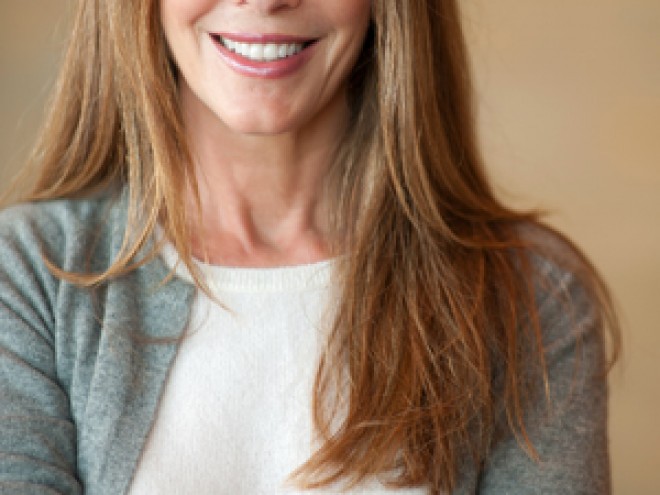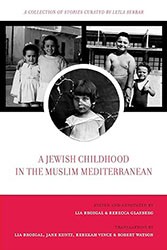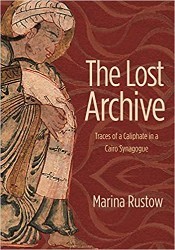
Eliyahu Hanavi Synagogue, Alexandria, Egypt. Photo by David Lisbona via Wikimedia Commons
In my sepia-toned memories, I am four years old, and it’s my first visit to Cairo. We are staying with my aunt in her luxury apartment in the Zamalek neighborhood overlooking the Nile, but I have no appreciation for it. I long for McDonald’s, Sesame Street, and pizza, the kind that is so saucy and cheesy, my mother must wash my clothes after I eat it. I’m afraid of the man’s voice that stretches over the city in the belly of the night. My uncle patiently explains to me that it’s not the sound of a King Kong – sized giant roaming the streets, but rather something called Fajr prayer, a Muslim prayer amplified by microphones and performed by a muezzin. My anxieties and homesickness are palpable, so my grandmother, whom I’ve just met, decides to take me out for a day. I’m to spend the night at her place, a smaller, quainter apartment in an old neighborhood of Cairo called Daher.
She holds my hand, guiding me through her streets, introducing me to the shoe shop owner, the roasted corn salesman, and, my favorite, the toy store manager who gives me a few balloons after my grandmother buys me a doll and a coloring book. The first morning in her apartment, she hands me a basket and shows me how to lower it five stories so the bread man can place a stack of steaming pitas in it for our bowls of morning fava beans. It isn’t a McDonald’s Happy Meal, but I begin to settle into this new world, guided by a woman whose tenderness still fills me with serenity.
Memories of those two days alone with her would cascade upon me four decades later, during the writing of my first novel, The Oud Player of Cairo. They would return as I attempted to create Zacharias Haroun, a Mizrahi Jew whose family has lived in Egypt alongside Christians and Muslims since the 1500s. What I couldn’t have known then, standing on my grandmother’s small balcony, basket in hand, was that I was walking-distance away from Ets Hayim, one of the oldest synagogues in the city. Built in 1900 and damaged during World War II, the synagogue is still ostensibly protected by the Egyptian Supreme Council of Antiquities. There are many synagogues in Cairo, but I imagined Zacharias attending services at Ets Hayim because it was in Daher, and I had walked its streets, eaten hot pita there, talked to its merchants. I was tied to this place, and my character would have to be as well. But my personal experience wasn’t enough to create a life, a persona, a set of lived experiences during a tumultuous time in Egypt. I needed to learn about the Jews of Egypt. I read research papers, articles, and, finally, André Aciman’s memoir, Out of Egypt.
The first morning in her apartment, she hands me a basket and shows me how to lower it five stories so the bread man can place a stack of steaming pitas in it for our bowls of morning fava beans.
In many ways, the memoir doesn’t just chronicle a bygone era of Egyptian Jews, but describes a belle epoque in Egypt that is set during the same period as my novel (1934 to 1956). There was a large European presence in Egypt then — a presence that came to be synonymous with civilized order and a level of prosperity that Egyptians often tie to a pre-Nasser golden age, a time before Nasser’s socialist regime spelled demise for the Egyptian economy and for the generations of Egyptians who failed to prosper. One can recognize this blend of cultures in Aciman’s colorful dialogue: Ladino phrases, Italian sayings, and French words are all interspersed into the lingua franca. Such a diaspora sets the stage for Aciman’s memoir, his life as a boy in the cosmopolitan city of Alexandria, and his family’s survival as, unbeknownst to them, temporary residents of this city by the sea. My Zacharias would experience a similar set of circumstances, loosely based on what I learned from Aciman.
Aciman tells his story as a flashback, in which he speeds up and slows down the narrative at the whim of his memory. Among the cast of characters are the charismatic and slightly cruel Uncle Villi, defeatist Aunt Flora, a philandering father, a deaf mother, and a great-grandmother who lives to be a hundred years old. All the while, Aciman reveals the love affair he’s having with Egypt. Not a rosy-hued love affair, but the kind of love affair in which a young man becomes accustomed to the blue Alexandrian seas, the city’s bustling neighborhoods, its succulent foods, and the scent of the breeze that ushers in Mediterranean springs. Alexandria was, after all, the only place Aciman called home until the 1952 Egyptian Revolution changed the way he and his family lived, leading to their departure in 1965. It brings change for my Zacharias too, and, like Aciman’s father, he is given little choice.
Jewish culture echoes throughout Egypt. For example, Ben Ezra synagogue is situated in the same area as Ibn Tulun mosque, the oldest in Egypt, and directly behind the Saint Virgin Mary’s Coptic Orthodox Church, which is often referred to as the Hanging Church. According to an article by Rebecca Ann Proctor, published on jewishinsider.com, in 2020, Egyptian authorities invested close to six million dollars for the “restoration of the Eliyahu Hanavi Synagogue after a committee at the Ministry of Antiquities recommended preservation of the synagogue, which dates to 1354.” Under the regime of President Al-Sisi, a small Jewish community has gained approval for further restoration projects.
I listened to an interview with Aciman on ajc.org. He discussed how his early adolescence in Egypt, particularly Alexandria, influenced his writing. He also recalled a painful time, when antisemitism became so strong under Nasser that he was forced to hide his identity, pretending he was Protestant when he knew nothing about the sect. It made me remember something my mother once told me in passing. One of her cousins married a Jewish woman during the early Nasser years, and he concealed her Jewish roots to protect her. Of course, the family knew, but even she, the wife, never talked about it. She converted to Catholicism before they married, and soon after they moved to the United States. But she never returned to Judaism. Their three children were raised Catholic, and her story is but a trace of a memory now. I had questions. How did she convert? What were her feelings about this? Did she have any keepsakes? Had she attended a synagogue? If so, where?
Recently, she and her husband retired to Florida, moving from up north to escape the cold. I asked my mother to arrange an interview with her. I’d take her to lunch, I said. My mother thought her cousin’s wife would be reluctant to speak but insisted that she’d try to talk to her. As of this writing, I have not heard back. Maybe some wounds are not meant to be opened. But we can still use history to breathe life into literature, to resurrect what once was as accurately as we can.
I have written a story about Egypt, my ancestral home, a place where Christians, Jews, and Muslims lived, loved, prospered, fought, and are buried in the same ground. The novel would have been incomplete without Zacharias — would have been a song without a refrain, a poem unfinished, a history untold. I invented him, but I didn’t invent his life, his sorrows, his passions. Those are things that were already there, and will be there long after I can no longer remember.
After earning a bachelor’s degree in Finance and an MBA, Jasmin Attia spent over fifteen years working for fortune 500 companies in the worlds of finance and technology. Despite her interest in her day job, story writing became her night job. In 2021 she graduated with her MFA in creative writing from Bennington College. Her debut novel, The Oud Player of Cairo, has won the Nicholas Schaffner Award for music in literature. Her nonfiction work has also appeared in The Writer’s Chronicle (Sept 2022 issue). Jasmin lives with her husband and two children in Palm Beach Gardens, Florida.



